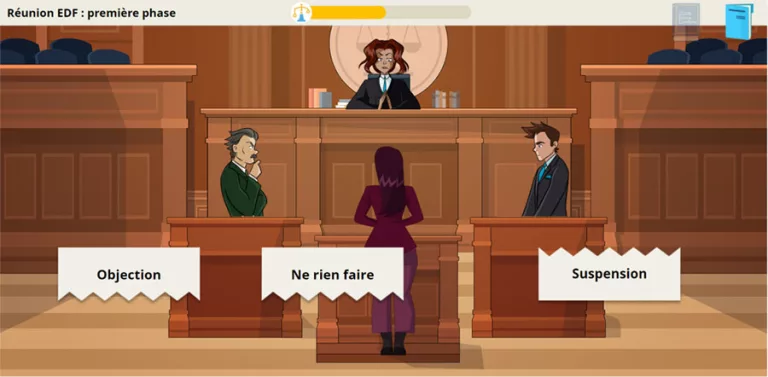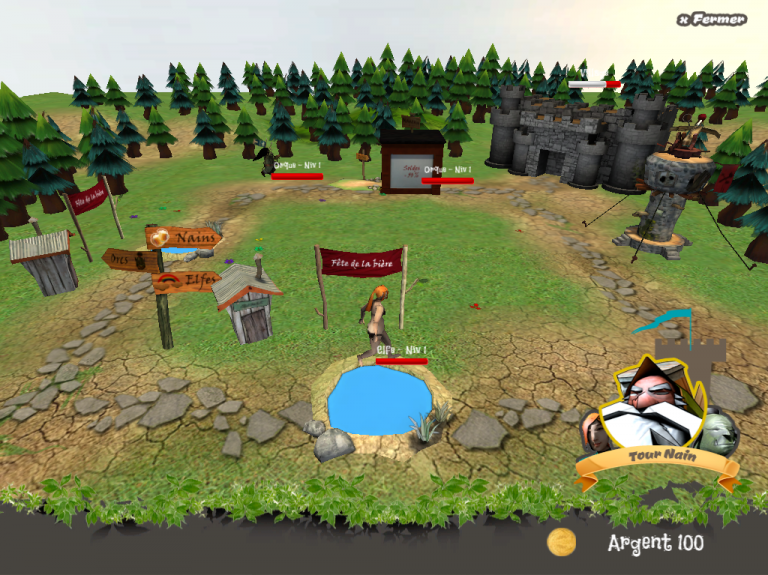Educational neuropsychology, more commonly called neuropedagogy, looks at how learners’ brains work and how they can be optimally exploited in the learning process. With the advent of digital training, new opportunities have opened up to apply the principles of neuropedagogy. They thus offer more effective means of acquiring knowledge, memorizing and engaging learners.
Using neuropedagogy: Promote attention, memorization and engagement
Key 1: Interactivity
One of the keys to promoting learner attention and engagement in digital training is interactivity. Online learning environments offer a variety of interactive tools such as quizzes, simulations, educational games… These elements stimulate attention by encouraging active participation, improving the memorization of information.
A study conducted by CP-Formation showed that learners have an attention span limited to around 15 minutes. The article explains that interactions allow learners to be more attentive and engaged. This therefore strengthens their ability to remember and apply this knowledge. Indeed, they would be more engaged in their training when it integrates fun activities similar to games. Thus, attention span must be taken into account and elements requiring active participation must be integrated. And this, in order to promote concentration, engagement and above all memorization of learners.
Key 2: Personalization
Personalization of learning content is another important strategy Thanks to the use of artificial intelligence (AI) and data analysis, digital training platforms are now able to adapt courses according to the individual needs of each learner. This results in better retention because learners are exposed to information that is relevant to them, increasing their engagement.
Research entitled “Primary school in the 21st century” (Cécile Redondo, Vincent Bonniol and Karine Bernard, 2021) demonstrated that learners were more inclined to complete personalized training compared to a standard course. The authors also highlighted that the application of neuropedagogy was a catalyst for motivation. They highlighted factors favorable to training, such as reflection on the mechanisms underlying learning and the individualization of training. Thus, adapted and personalized training has a more significant impact on the emotional well-being of the learner, resulting in an increased investment in their learning.
Key 3: Positive emotions
Les émotions jouent un rôle-clé dans le processus d’apprentissage. Les neurosciences ont montré que les émotions positives, comme la motivation et le plaisir, stimulent la libération de neurotransmetteurs telle que la dopamine, favorisant ainsi la mémorisation et l’engagement. Digital training can harness this knowledge using techniques such as gamification. Indeed, the integration of fun elements integrated into lessons arouses positive emotions. For example, using virtual rewards, leaderboards, and challenges can make learning more engaging for learners.
The article “Neuropedagogy and serious games” (2019) revealed that learners exposed to gamification elements in training showed a significant increase in motivation and engagement, which led to better retention of skills. knowledge.
Audacity and neuropedagogy for impactful and engaging training
Audace positions itself as a key player in the field of engaging digital training. With 25 years of experience, Audace offers solutions such as elearning, serious games and immersive learning. Using the levers of neuropedagogy applied to digital, Audace designs relevant tailor-made training courses meeting the needs of each company.
Click to find out more about our digital training
References
- https://colloque-lp21.sciencesconf.org/data/book_colloque_lp21_fr_Axe_5_RechercheFormation.pdf#page=35
- https://revues.imist.ma/index.php/REINNOVA/article/view/34719
- https://www.cp-formation.com/actualite/neuropedagogie-digital-learning-mix-booste-apprentissage/
- https://www.institut-domi.ch/la-neuropedagogie-et-les-serious-games/
- https://shs.hal.science/halshs-03138005/




